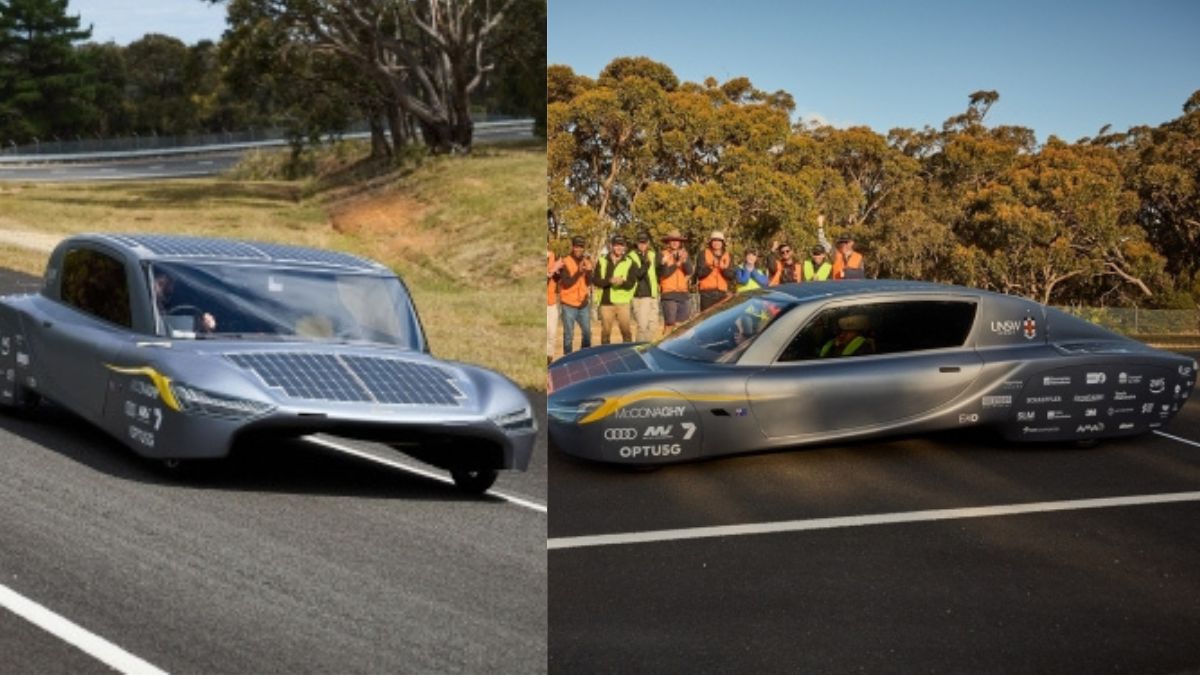Students made solar-powered electric car sets new world record by driving 620 km
December 21, 2022 By Aaem Joshi

(Image Credit Google)
 Image credit- Interesting Engineering[/caption]
According to Sunswift Team Manager Andrea Holden, construction on the vehicle began two years ago, during the COVID-19 lockdown. Holden admits that the endeavour was difficult, but the world record is proof of their labor's success.
Due to its aerodynamic construction, the Sunswift 7 weighs only 500 kg, or about one-fourth of a Tesla. The team asserts that the EV has an amazing rolling low instance and excellent motor and drive chain efficiency.
The record attempt wasn't without mishap; at one point, a battery management issue caused the car to come to a complete stop.
The crew almost broke the event rule that Sunswift 7 must be stationary for more than 15 minutes at a time when it took them 14 minutes and 52 seconds to fix the problem and return to the course.
[caption id="" align="aligncenter" width="2000"]
Image credit- Interesting Engineering[/caption]
According to Sunswift Team Manager Andrea Holden, construction on the vehicle began two years ago, during the COVID-19 lockdown. Holden admits that the endeavour was difficult, but the world record is proof of their labor's success.
Due to its aerodynamic construction, the Sunswift 7 weighs only 500 kg, or about one-fourth of a Tesla. The team asserts that the EV has an amazing rolling low instance and excellent motor and drive chain efficiency.
The record attempt wasn't without mishap; at one point, a battery management issue caused the car to come to a complete stop.
The crew almost broke the event rule that Sunswift 7 must be stationary for more than 15 minutes at a time when it took them 14 minutes and 52 seconds to fix the problem and return to the course.
[caption id="" align="aligncenter" width="2000"] Image credit- CleanTechnica[/caption]
Sunswift 7 completed 240 laps on the AARC Highway Circuit, which is more than the distance between Sydney and Melbourne, to break the previous record. Only occasional driver changes, one tyre repair due to a puncture, and battery maintenance were required while the car was stationary.
The record, according to the team's director, Professor Richard Hopkins, represents the potential of the automobile industry. As the head of operations at Red Bull, he also won F1 world championships, and he regards the new record as one of his finest accomplishments.
Prof. Hopkins also pointed out that this record's energy usage was only 3.8 kWh/100km, as opposed to the "most efficient EVs," as he puts it, which can only achieve a rating of 15 kWh/100km and an average of 20 kWh/100km.
Image credit- CleanTechnica[/caption]
Sunswift 7 completed 240 laps on the AARC Highway Circuit, which is more than the distance between Sydney and Melbourne, to break the previous record. Only occasional driver changes, one tyre repair due to a puncture, and battery maintenance were required while the car was stationary.
The record, according to the team's director, Professor Richard Hopkins, represents the potential of the automobile industry. As the head of operations at Red Bull, he also won F1 world championships, and he regards the new record as one of his finest accomplishments.
Prof. Hopkins also pointed out that this record's energy usage was only 3.8 kWh/100km, as opposed to the "most efficient EVs," as he puts it, which can only achieve a rating of 15 kWh/100km and an average of 20 kWh/100km.
Leave a Reply

Apple's iOS 18: A Leap into the AI Era
March 12, 2024

Google's Regular Pixel 8 Won't Get Gemini Nano AI
March 12, 2024

MacBook Air M3 Makes Amends for M2's Storage Blunder
March 11, 2024

Samsung Unveils the Galaxy M15 5G
March 11, 2024

Elon Musk's xAI to Open-Source Chatbot Grok
March 11, 2024

Contra: Operation Galuga - A Modern Run-and-Gun Classic
March 11, 2024

Musk Confirms X's TV App Arrives This Week
March 11, 2024
RELATED NEWS
2
3
4
5
6
7
8
9
10

.jpeg )

